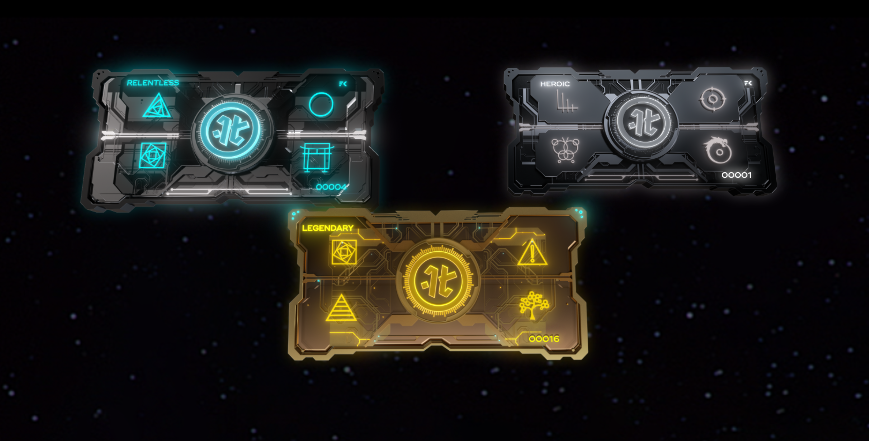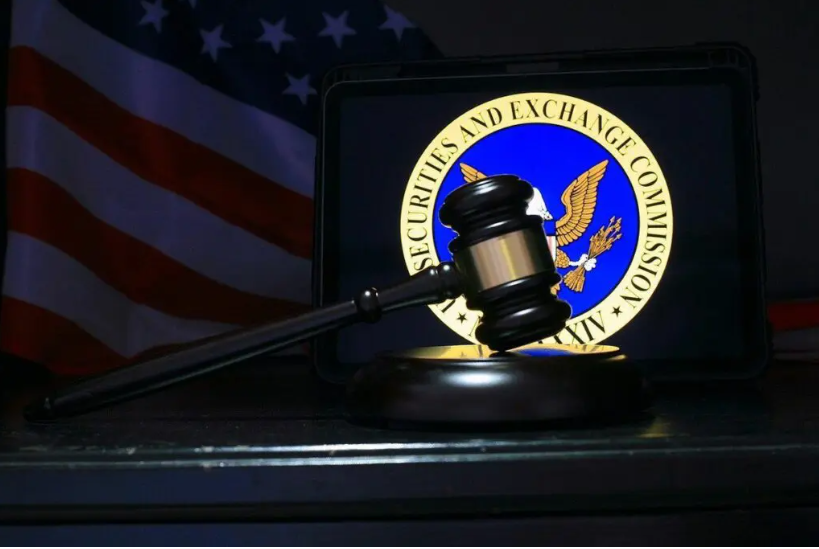For the first time, the SEC has charged an NFT project – Impact Theory Founders Key for offering unregistered securities through the sale of NFTs. Whether this is considered a worrying trend for NFT collections when conducting their sale in the future, let’s find out with Weakhand in this article.
Before jumping into the article, everyone can refer to some of the following articles to understand better.
- What are NFTs? All about NFTs
- NFT Monthly August: Gloom covers the entire NFT market
What Happened to Impact Theory
On August 28, 2023, the SEC charged an LA-based company called Impact Theory with selling unregistered securities – NFTs called Impact Theory Founder’s Key to investors. from the United States.
The sale took place from October to December 2021, when Impact Theory opened for sale the Impact Founders Key NFT collection including 3 levels Legendary, Heroic and Relentless and raised 30M USD from hundreds of investors in That includes investors in the United States.

Impact Theory launches Founders Key NFT sale
On August 29, 2023, Impact Theory announced that it had reached an agreement with the SEC. They agreed to pay a $6.1M fine, refund NFT investors, and destroy any remaining Founders Keys the project owned. Impact Theory will even have to eliminate any royalty revenue that could be earned from selling NFTs on secondary markets in the future.
Why Does the SEC Care About Impact Theory?
There is nothing on the Impact Theory website that openly promises profits, return on investment, etc. to holders of the Impact Founders Key NFT. So what caused the SEC’s outrage?
Judging from the project’s development vision, it promises to build “the next generation Disney” and bring immense value to NFT holders. But even if a company had the ambitious goal of building a Disney-like storytelling empire on Web3, why would the SEC consider its NFTs to be securities?
It will be helpful if we go back to the story of the Howie Test – a way to determine whether something is a security or not, originating from a legal case between the SEC and Howie Co in 1946. The proposition is as follows: An asset is an investment contract if the buyer invests his money in a common enterprise and leads to the expectation of profits solely from the efforts of the promoter or third party, the Whether or not the shares in the enterprise are immaterial is evidenced by official certificates or by a nominal interest in the physical assets used in the enterprise.
When users mint Founders Key NFTs, the “next generation Disney” has not yet been built by Impact Theory. The company planned to build it with the proceeds from mint NFT users. It’s a conventional business, and NFT holders can expect profits (i.e. their NFTs will increase in value) thanks to Impact Theory’s efforts.
In a Twitter post, Impact Theory executives wrote that going forward the company will always make it clear that Founders Key NFTs will be used purely within their product ecosystem and that they should not be considered are anything but “utility collectibles.”
Will be live in Discord later to answer questions. @impact_theory is pleased to announce that we have reached a settlement with the US Securities and Exchange Commission in which we resolved the SEC’s investigation. We are happy to have concluded the SEC’s investigation, so…
— Tom Bilyeu (@TomBilyeu) August 28, 2023
SEC Will Pursue More NFT Projects

If we apply Howie Test’s story to the Crypto market, it really creates a disaster. Whenever a user purchases a crypto asset (Token or NFT) of a project that has not yet released a product, and the project plans to use the proceeds to build that product and the project promises promises to bring some value to its backers – the SEC has grounds to call this asset a security.
The problem with stocks is that they need to be registered with the SEC in order to be offered to so-called non-accredited investors in the United States. Roughly speaking, if your net worth is under $1M and you earn less than $200,000 a year then you are a non-accredited investor and that of course includes the vast majority of people earning collect NFTs and crypto users.
Up to this point, the SEC has charged many Crypto projects for their token sales, and Impact Theory is the SEC’s first sanctions against projects in the NFT market. As an NFT buyer, you should stay away from projects that promise profits. Before participating in minting or buying NFTs on the secondary market such as: OpenSea, Blur,… or carefully read the website, Blog and any documents related to the project.
summary
Having an NFT project fined by the SEC is not a bad thing because this helps protect US investors from Scam and fraudulent projects. But what genuine projects in the Crypto market want is to see a clearer law from the SEC for the project to comply with, but this has not happened yet. Above is all the information that I want to introduce in this article, hope everyone has received useful knowledge.


